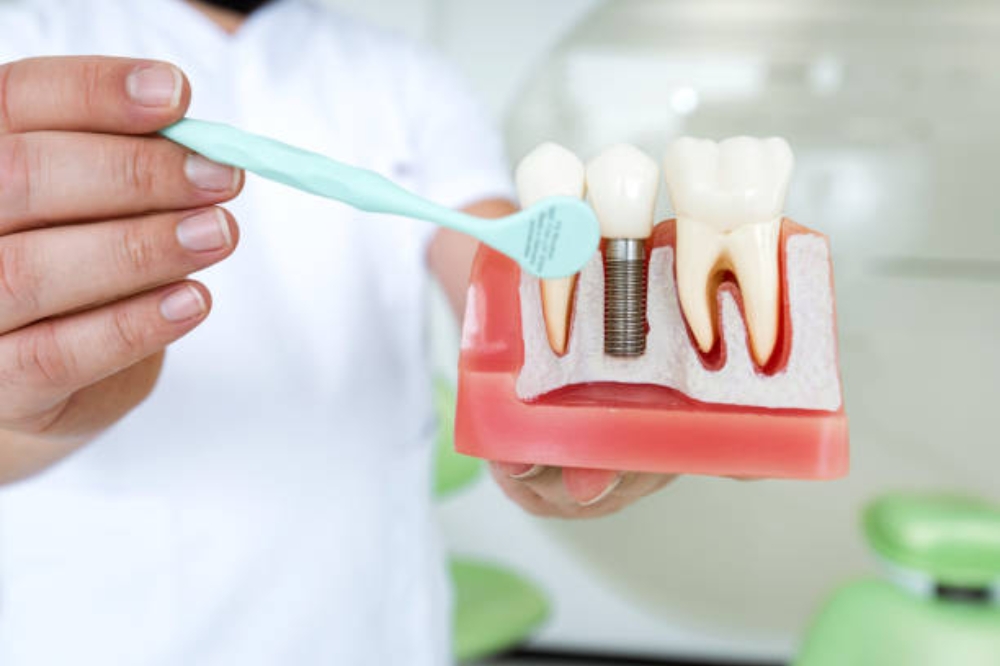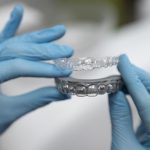If you are missing most or all of your teeth, you may have looked for dental implants near you. One of today’s advanced solutions is All-on-4 dental implants.
This treatment involves only four implants to support a full set of replacement teeth. It can be quicker and usually cheaper than replacing teeth individually. However, like all treatments, there are pros and cons.
How Do All-on-4 Dental Implants Work?
Instead of requiring a dental implant for every single missing tooth, All-on-4 requires four implants placed in specific areas of your jaw.
These implants will support a full arch of prosthetic teeth. Many patients love the All-on-4 option because it:
-
Reduces the number of surgeries
-
Provides stable teeth in fewer appointments
-
Allows you to eat and smile confidently again
A dentist near you can review your oral health to see if you are a good candidate.
The Pros of All-on-4 Dental Implants
Patients choose All-on-4 for several strong reasons:
-
Faster results – Often, new teeth can be placed on the same day as surgery.
-
Fewer implants needed – Just four implants per arch instead of many.
-
Cost-effective – Usually less expensive than individual implants for every tooth.
-
Stronger bite – Lets you chew most foods comfortably.
-
Prevents bone loss – Implants stimulate the jawbone, keeping it strong.
For the majority, these benefits make All-on-4 a life-changing choice.
The Cons of All-on-4 Dental Implants
As with any procedure, there are drawbacks. Some common drawbacks of All-on-Dental Implants:
-
Not removable – You can’t take them out like dentures.
-
Higher initial cost – More expensive as compared to dentures.
-
Surgery is required – Healing time is longer compared to non-surgical options.
-
Bone requirements – If you have major bone loss, you may need grafting first.
These are some of the main drawbacks of All-on-4 implants that patients should consider before treatment.
Is All-on-4 Right for Me?
Are you asking yourself, “Is All-on-4 right for me?” That depends on your dental health and lifestyle, since it works best for:
-
Patients missing most or all of their teeth
-
People who want a fixed, stable solution
-
Those with enough healthy jawbone to support implants
-
Patients who want to avoid traditional dentures
Your dentist will take X-rays, look over your health history, and discuss your goals to determine if this option is right for you.
All-on-4 vs. Traditional Implants
Here are some short comparisons so you can see the difference:
|
Feature |
All-on-4 Implants |
Traditional Implants |
|
Number of implants |
4 per arch |
6–10 per arch |
|
Time required |
Teeth placed same day (often) |
Several months for full process |
|
Cost |
Lower overall |
Higher (more implants needed) |
|
Best for |
Full arch replacement |
Single or multiple tooth gaps |
Wrapping Up!
All-on-4 dental implants provide a strong, natural-looking, and long-term solution to replace missing teeth and allow patients to return to eating, smiling, and speaking with confidence again. However, like any treatment, there are certainly pros and cons that need to be carefully evaluated.
At Sidney Harbour Dental, we can help you decide if All-on-4 treatment is right for your smile. Before deciding on your treatment, we will examine the reasons for your missing teeth and work with you to create a treatment plan designed specifically for you.
Book a consultation now and take the first step towards a confident, long-lasting smile today!
Frequently Asked Questions About All-on-4 Implants
1. How long do All-on-4 dental implants last?
With good oral hygiene and regular checkups, All-on-4 implants can last 15 years or more. The implants themselves can often last a lifetime, while the attached prosthetic teeth may eventually need replacement.
2. Can I eat normally with All-on-4 implants?
Yes. Once healed, All-on-4 implants give you a strong bite and allow you to eat most foods comfortably. Hard or sticky foods should be eaten with care to avoid damaging the prosthetic teeth.
3. What is the recovery time for All-on-4 implants?
Most patients take a few days to a week to recover from surgery. The jawbone takes 3–6 months to completely heal, but we usually place temporary teeth in to allow patients to smile and eat while they heal.






